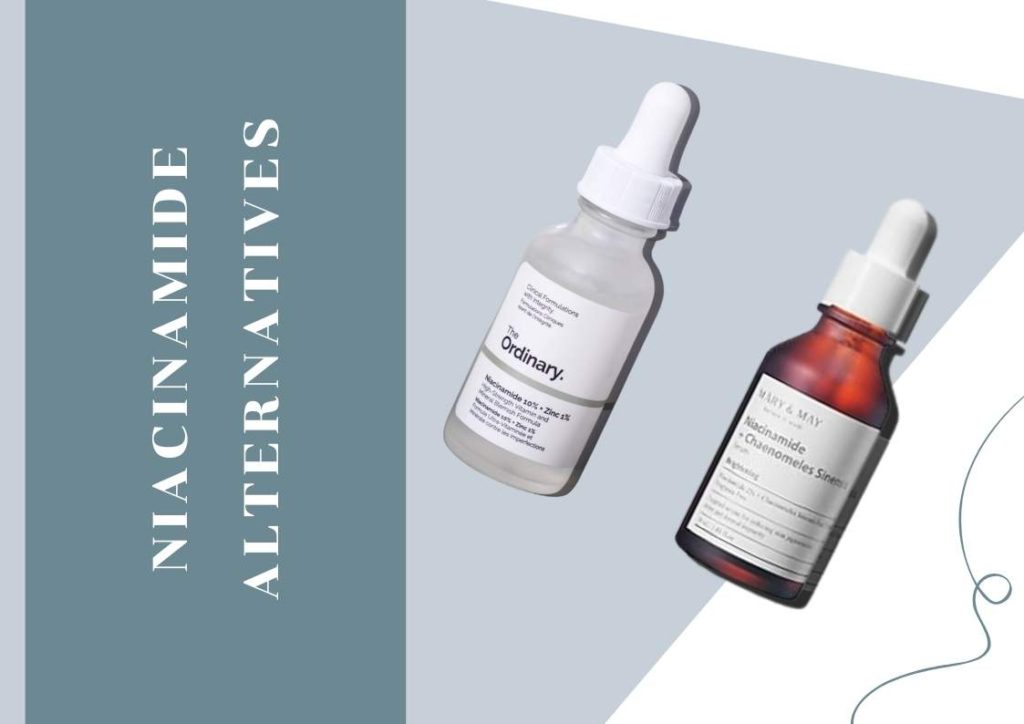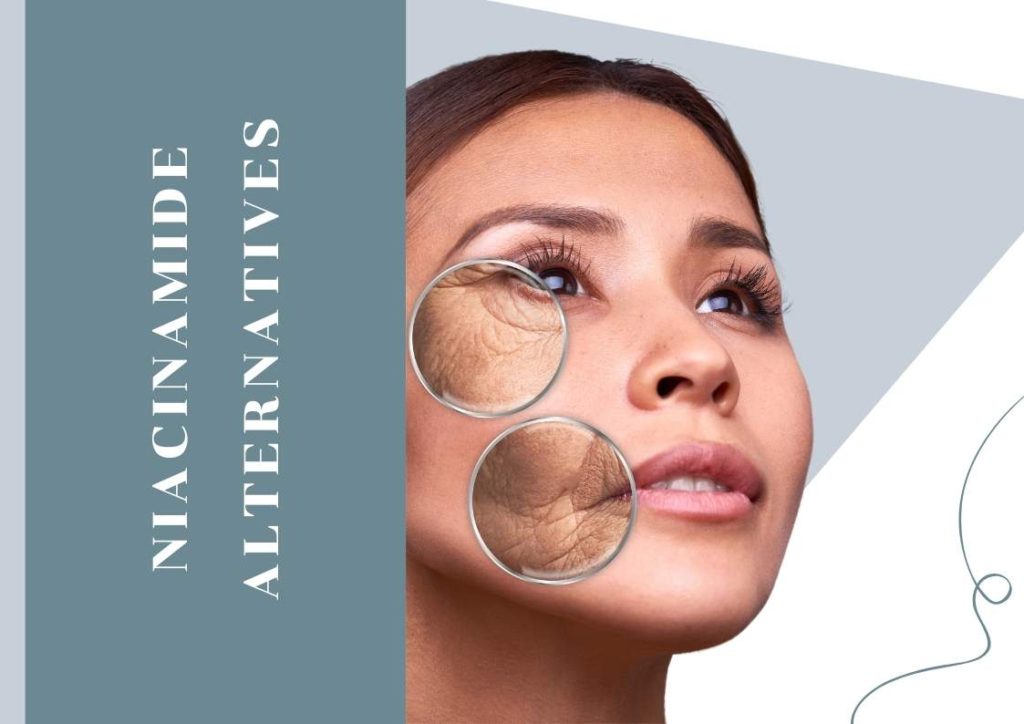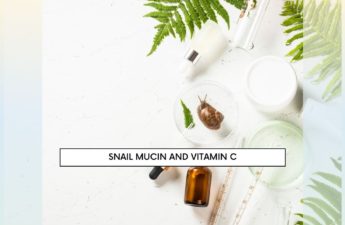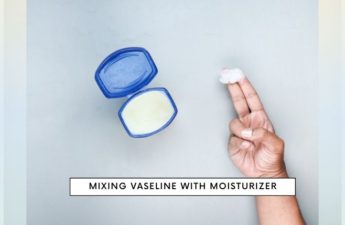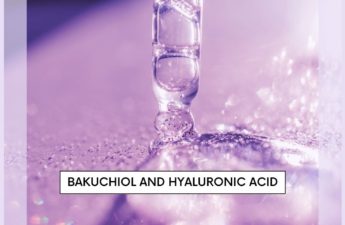Niacinamide is a naturally-occurring form of vitamin B₃ found in hundreds of skincare products. Clinical trials show that niacinamide improves skin tone, reduces signs of aging, minimizes pores, and increases skin moisture. However, niacinamide is not suitable for everyone, especially those with skin sensitivities.
Alternatives to niacinamide for anti-aging include CoQ10, oral collagen supplements, or vitamin C serums. Minimize pores with alpha-hydroxy acids or retinoids. For added moisture, opt for hyaluronic acid or products containing glycerin. Try glycolic acid peels or hydroquinone for uneven skin tone.
If niacinamide is too strong for your skin, consider alternative products to achieve similar results. This article examines the benefits of niacinamide in skincare routines and how you can achieve those same benefits with alternative products. Read on to learn more.
What Benefits Does Niacinamide Offer?
Many skincare products on the market seem like a sham, but niacinamide is not one of them.
Some of the benefits Niancimide offers are:
- Improvement in hyperpigmentation
- Reduction of fine lines and wrinkles
- Pore minimization
- Improved skin moisture and elasticity
- Alleviation of redness
These benefits have appeared in numerous clinical trials.
Unfortunately, not everyone tolerates niacinamide — but that doesn’t mean that they can’t achieve beautiful, supple skin without it.
Products You Can Use To Get Similar Benefits to Niacinamide
Luckily, niacinamide is not the only skincare product that provides multiple skin benefits. This section will cover some alternatives to niacinamide that offer the same or similar results.
Ingredients With Anti-Aging Benefits
The application of topical niacinamide shows significant skin improvements, including the reduction of fine lines and wrinkles, as well as improved skin elasticity.
Alternative ingredients that boast similar results include:
- CoQ10
- Collagen
- Vitamin C
Below, we’ll discuss each of these ingredients more thoroughly.
CoQ10
A naturally-occurring enzyme in the human body, CoQ10 production decreases as we age. As such, our skin becomes more susceptible to damage, including fine lines and wrinkles. By implementing products containing CoQ10 into your daily skincare ritual, you can potentially improve the look and feel of your skin.
It’s Skin Power 10 Formula Q10 Effector 30ml
Collagen
Clinical trials show that topically-applied collagen moisturizes the skin— but the benefits end there. Topical collagen does not penetrate the deeper layers of the skin due to its large molecular size. However, after only three months, oral collagen supplements significantly improve skin hydration, elasticity, and texture.
It’s Skin Collagen Nutrition Cream
Vitamin C
Thousands of skincare products contain vitamin C, including facial moisturizers, serums, and primers. It plays a vital role in collagen production and reduces collagen degradation. In clinical trials, topical vitamin C serums (three percent concentration) improved the overall look and feel of the skin.
Additionally, a topical product containing vitamin C showed anti-aging benefits, as well as an improvement in overall skin elasticity.
Ingredients With Moisturizing Properties
Getting older leads to a multitude of unwanted skin problems, particularly a lack of moisture. Due to the reduction in natural oil production, sun damage, and hormonal changes, skin becomes rough and dry.
Niacinamide helps keep skin moisturized by preventing moisture evaporation on the epidermis — but it’s not the only product that moisturizes skin. Hyaluronic acid and glycerin are two alternatives to niacinamide that also keep skin looking dewy and rejuvenated.
Hyaluronic Acid
In topical applications, hyaluronic acid penetrates deep into the epidermis. This provides sufficient surface hydration — but not all hyaluronic acids are the same. It’s vital that you choose a product that comes in multiple molecular sizes to achieve all of the ingredient’s benefits.
Nano-hyaluronic acids found in creams, serums, and lotions show incredible skin improvement after only two weeks of use.
Torriden Dive-In Low Molecule Hyaluronic Acid Serum
Glycerin
Products designed for dry, sensitive skin conditions such as eczema or psoriasis often contain glycerin. This ingredient improves overall skin hydration and creates a barrier to protect the skin from additional damage. It’s especially beneficial for use during the cold, drier months.
Kiehl’s Hydro-Plumping Re-Texturizing Serum Concentrate
Ingredients That Reduce Pore Size
In addition to moisture loss, skin loses elasticity as we age. As a result, the skin begins to stretch, sag, and wrinkle, making pores more prominent. Additionally, skin density increases as we age, causing skin cells to cluster together around the pores and making them appear larger.
Niacinamide controls sebum levels, which prevents excess oils and debris from entering the pores. Because of this, the pores do not become stretched out, giving the skin a softer, smoother, more supple appearance.
Other ingredients also have the ability to reduce pore size in similar ways.
Alpha Hydroxy Acids
Alpha-hydroxy acids, including lactic acid (found in milk), can reduce the appearance of pores. This acid achieves this by decreasing the number of dead skin cells on the skin’s surface. It cleans away oil, dirt, and prevents other debris from building up and stretching pores.
Biossance Squalane + Lactic Acid Resurfacing Night Serum
Retinoids
Retinoids are incredibly popular skincare products, especially for their anti-aging benefits. However, retinoids can also reduce the size of pores by improving skin elasticity. Studies show that retinoids lead to a significant improvement in skin appearance after twelve weeks, including a reduction in pore size.
Skinceuticals Retinol 1 Maximum Strength Refining Night Cream

Evening of Skin Tone
Niacinamide is the holy grail skincare product when it comes to evening out skin tone. The ingredient works so well because it blocks melanin formation. In clinical studies, niacinamide reduced freckles and other skin discoloration within a month. Additionally, it improved skin yellowing and redness.
You don’t have to use niacinamide to achieve the same results, however. Other products have proven to even out skin tone just as well as niacinamide.
Glycolic Acid Peels
Glycolic peels use glycolic acid to exfoliate the skin. The acid penetrates the skin, removing dead skin cells, dirt, and debris. Additionally, glycolic acid helps with collagen regeneration, ultimately improving the look of uneven pigmentation and even reducing the appearance of acne scarring.
Malin + Goetz 10% Glycolic Acid Pads
Kojic Acid
You can get kojic acid product at a two percent concentration. The product helps to lighten hyperpigmentation and even out skin tone. Use an adequate amount of sunscreen when using kojic acid, as it can increase photosensitivity. Additionally, UV exposure can darken any existing skin discoloration, leading to a longer fade time.
La Roche-Posay Glycolic B5 10% Pure Glycolic Acid Serum with Kojic Acid and Vitamin B5
Final Thoughts
While niacinamide boasts multiple benefits and helps achieve a flawless skin, not everyone can tolerate the ingredient. Niacinamide may cause mild burning, itching, and redness, or more extreme reactions, such as rashes, hives, blisters, and peeling skin.
If you experience any adverse effects, it’s essential to know that there are alternatives. You can still achieve the same skincare benefits using different products.
Sources
- US National Library of Medicine: The Effect of Niacinamide on Reducing Cutaneous Pigmentation and Suppression of Melanosome Transfer
- US National Library of Medicine: Topical Niacinamide Reduces Yellowing, Wrinkling, Red Blotchiness, and Hyperpigmented Spots in Aging Facial Skin
- US National Library of Medicine: Niacinamide – A B Vitamin That Improves Aging Facial Skin Appearance
- Nivea: What is Coenzyme Q10?
- US National Library of Medicine: A Collagen Supplement Improves Skin Hydration, Elasticity, Roughness, and Density
- US National Library of Medicine: Topical Vitamin C and the Skin
- US National Library of Medicine: Anti-Aging and Brightening Effects of a Topical Treatment Containing Vitamin C, Vitamin E, and Raspberry Leaf Cell Culture Extract
- WebMD: Age and Skincare – Vitamin A, Sunscreen, and More
- Harvard Medical School: The Hype on Hyaluronic Acid
- US National Library of Medicine: Efficacy of a New Topical Nano-hyaluronic Acid in Humans
- US National Library of Medicine: Glycerol and the Skin – Holistic Approach to Its Origin and Functions
- Mallama: Everything You Want To Know About The Little Superstar in Skin Care – Niacinamide
- Misumi Luxury Beauty Care: The Ultimate Guide to Lactic Acid for Skin
- US National Library of Medicine: Retinoids in the Treatment of Skin Aging – An Overview of Clinical Efficacy and Safety
- Rush University: Chemical Peel
- Mayo Clinic: Fluocinolone, Hydroquinone, And Tretinoin (Topical Application Route)
